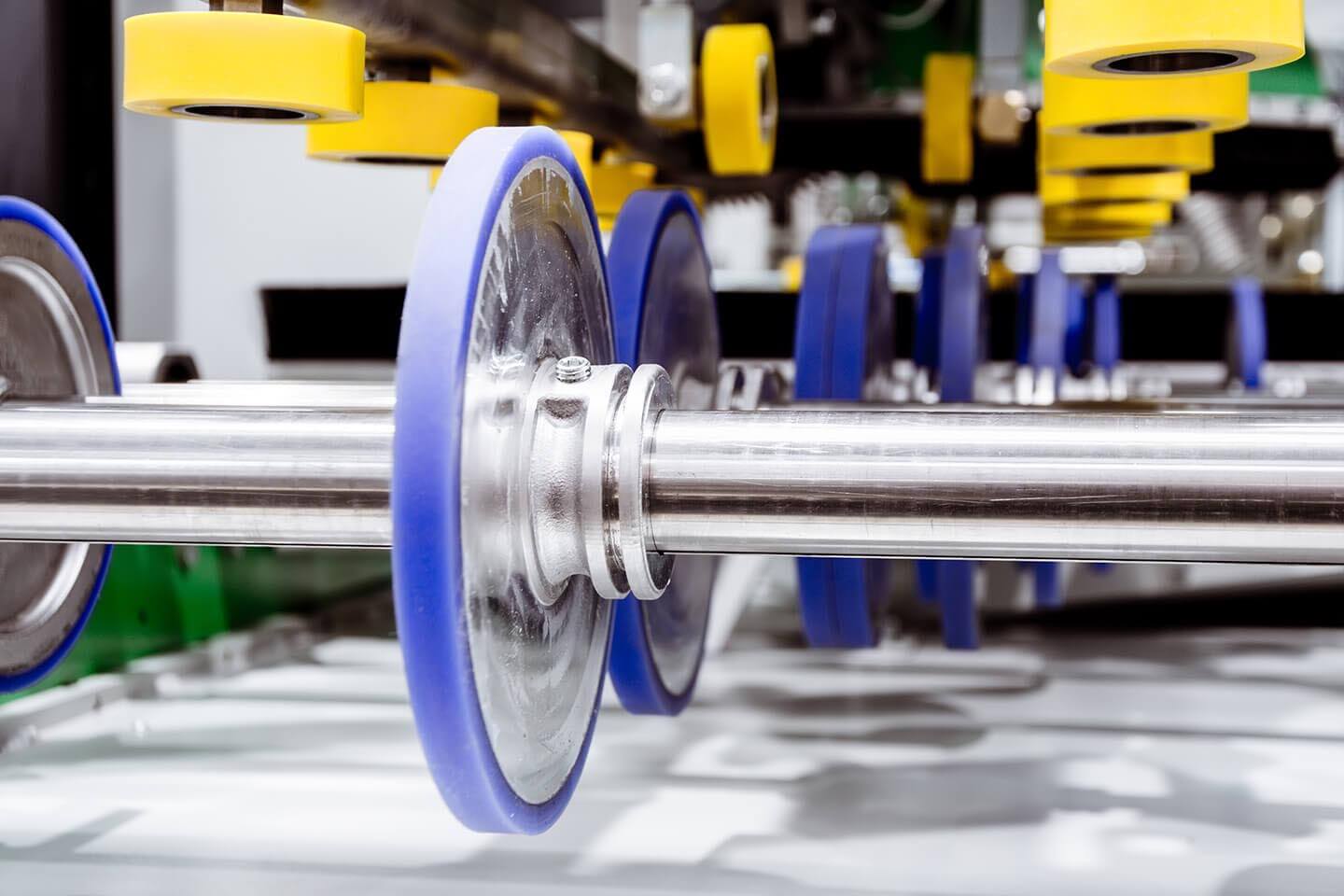Cast Polyurethane Springs
Highly Resilient & Reliable
Springs are simple, but beautifully complex when it comes to their versatility and usefulness. Steel alloys are the most commonly used spring materials, but steel is not appropriate for all spring applications.
PSI Urethanes manufactures polyurethane springs that are designed for special applications where steel wire springs are not well-suited, including applications in which corrosion, magnetism, and vibration are present.

Urethane springs are often preferred over their rubber and metal equivalents.
What Is the Function of a Spring?
The most basic definition for a spring is: a device that stores mechanical potential energy. When it is compressed or stretched, it exerts an opposing force that is relatively proportional to its change in length. Springs come in a variety of types and can serve a variety of purposes, with a single spring potentially serving more than one purpose. Common purposes include:
- Storing energy for part of a functioning cycle;
- Forcing a component to maintain contact with, engage with, or remain clear of another component;
- Counterbalancing a weight or thrust;
- Returning a component to its original position after displacement;
- Reducing shock or impact;
- Permitting freedom of movement between aligned components without disengaging them
Three Common Types of Springs
There are innumerable types of mechanical springs, including extension springs, torsion springs, constant springs, variable springs, flat springs, machined springs, serpentine springs, and wave springs, just to name a few. However, not all springs can be manufactured out of urethane, nor should they. Urethane is most commonly used for cylindrical, non-coil springs, like the following:
Die Springs
Urethane die springs are critical in die-cutting operations where vibration, corrosion, and magnetism prevents the use of traditional steel springs. Steel springs can fracture during the die-cutting process and potentially injure machine operators. Urethane die springs are non-marring, quiet, and can handle higher pressures than their steel counterparts, resulting in a safer work environment for machine operators.
Compression Springs
A compression spring is a helical spring that offers resistance to a compressive force when applied axially. Urethane compression springs can be made in the shape of tubes, cylinders, rectangular pads, and sheets. These springs squeeze together to create a load, this can be found in suspensions.
Disc Springs
Disc springs (also called Belleville springs or washers) are conically-shaped and are designed to be axially loaded. On the outer periphery, they are supported by one force, and an opposing force at the center of the disc. Urethane disc springs can be used singly or in stacks to achieve the desired travel and load. Disc springs are unique in that they can generate high force even with a very small spring length, and with minimal movement when compressed.
Advantages of Urethane Springs
As noted previously, urethane springs are ideal for environments wherein corrosion, vibration, and magnetism prevent the use of conventional steel springs. Where steel and rubber springs fail, urethane springs excel. They can typically maintain their effectiveness and withstand temperatures ranging from minus 30 degrees F to 225 degrees F, in addition to offering the following advantages:
- Shock absorption
- Oil, solvent, and corrosion resistant
- Abrasion resistant
- Protection against galling/marring
- Long service life, but easy to replace
- High load-carrying capacity
- Non-magnetic
- Easily bonded to mating parts
Applications for Urethane Springs
Urethane springs are used in a variety of mechanical systems and industrial applications, including in automotive suspensions and clutches, locomotive suspensions, elevators, escalators, and shock absorbers. They have also proven to be the most efficient and reliable compression material for punching, stamping, and drawing dies.
Custom Urethane Springs From PSI Urethanes
PSI Urethanes specializes in custom urethane projects. Custom urethane springs are commonly cast in solid urethane, or in tube form. Call one of our experienced application engineers today at (800) 888-5156 to learn more about urethane springs and get a quick quote for your project. In order for our experts to make the best recommendation possible, please have the pressure, strokes per minute, and material being punched, when relevant to your project. You can also conveniently request a quote for your custom urethane project online at any time.
Industries Utilizing Urethane Springs
Many industries rely on urethane springs for their needs, including:
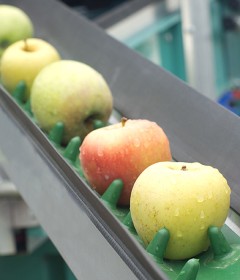
Food Processing
PSI manufactures FDA approved urethane products for food processing applications.…
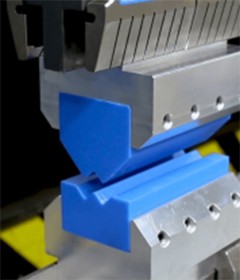
Metal Forming
PSI Urethanes is a leading manufacturer of cast urethane for metal forming press…

Military
We manufacture custom molded parts, polyurethane sheets, and bond to metal for the…
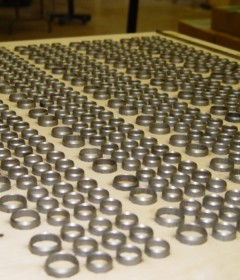
Die Cutting
Our quality and accuracy in keeping close tolerances make our company sought out…
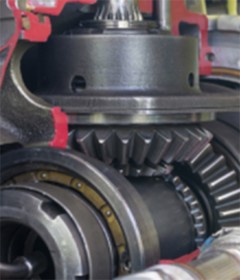
Fluid Cell Remold
For industries that depend on highly complex parts to keep their equipment functioning,…
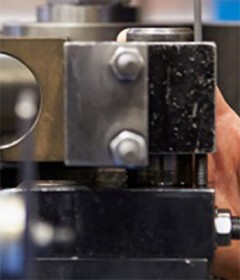
OEM's
Original Equipment Manufacturers (OEMs) utilize PSI Urethanes’ manufacturing expertise…

Marine
PSI Urethanes is a leading manufacturer of cast and molded urethane for the marine…
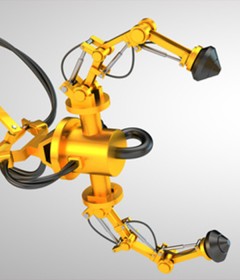
Process Automation
From rollers and bumpers to assembly systems and material handling, urethane is a…

Automotive
PSI Urethanes is a leading manufacturer of cast and molded urethane for the automotive…
Ask Our Experts.
Contact us today to learn how we can meet your project’s requirements.

